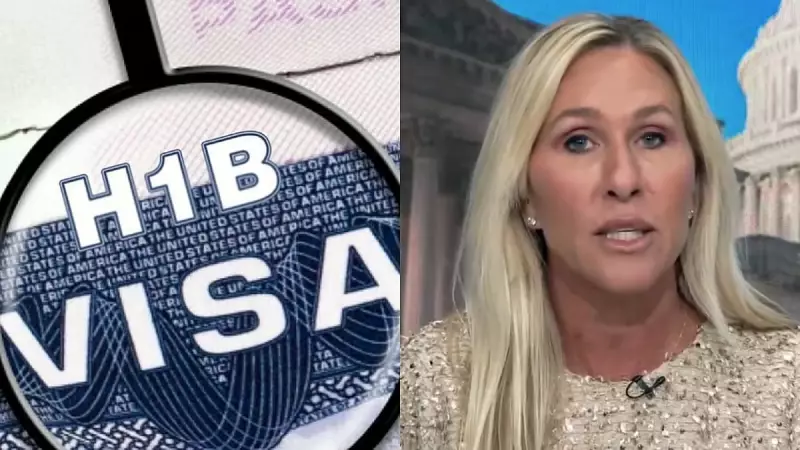
In a move that could significantly impact thousands of Indian professionals, a United States lawmaker has announced plans to introduce legislation that would completely eliminate the H-1B visa programme. Republican Congressman Eric Burlison from Missouri revealed his intention to bring forth this controversial bill, marking one of the most aggressive attempts to dismantle the popular work visa system that has been instrumental in bringing skilled foreign workers, particularly from India, to American shores.
The Proposed Legislation and Its Rationale
Congressman Eric Burlison, representing Missouri's 7th congressional district, is spearheading this initiative to terminate the H-1B visa programme entirely. The proposed bill comes as part of broader immigration reform efforts that Burlison and his supporters argue will protect American workers and address what they perceive as flaws in the current immigration system.
The H-1B visa programme has long been a cornerstone of US immigration policy for skilled professionals, allowing American companies to employ foreign workers in specialty occupations that require theoretical or technical expertise. Technology companies, research institutions, and various other industries have heavily relied on this programme to fill critical skill gaps in their workforce.
Burlison's announcement came during a congressional hearing where he expressed concerns about the programme's impact on American workers. The lawmaker argued that the H-1B system has been exploited by some companies to replace American employees with cheaper foreign labor, ultimately depressing wages and reducing opportunities for domestic workers.
Potential Impact on Indian Professionals
The elimination of the H-1B visa programme would have profound consequences for Indian professionals who have historically been the primary beneficiaries of this immigration pathway. Indian nationals consistently receive approximately 70-75% of all H-1B visas issued annually, making this development particularly significant for India's tech community and the broader bilateral relationship between the two nations.
Thousands of Indian students pursuing higher education in the United States, as well as professionals seeking career opportunities in American companies, would face unprecedented challenges if this legislation were to pass. The H-1B visa has traditionally served as a crucial bridge for Indian talent seeking to build careers in the United States, particularly in the technology sector where Indian professionals have made substantial contributions to innovation and growth.
Beyond immediate employment concerns, the proposed elimination raises questions about the future of Indian professionals currently working in the United States on H-1B visas and those in various stages of the green card process. Many Indian families have built lives in America through this programme, and sudden changes could create significant uncertainty and disruption.
Broader Implications for US-India Relations
This legislative effort emerges at a time when the United States and India have been strengthening their strategic partnership across multiple domains, including technology, defense, and economic cooperation. The proposed bill could potentially strain diplomatic relations between the two nations, particularly given the importance of people-to-people connections that have been facilitated by programmes like the H-1B visa.
Indian technology companies and American firms with significant operations in India would need to reconsider their staffing strategies and global talent deployment models. The IT services industry, which has relied on the mobility provided by H-1B visas, might face operational challenges and increased costs if alternative arrangements cannot be established.
Meanwhile, other countries with competitive immigration policies for skilled professionals, such as Canada, Australia, and the United Kingdom, might benefit from this proposed shift in US policy. These nations have been actively courting global talent and could potentially attract skilled Indian professionals who might otherwise have chosen the United States.
The legislative process for such a significant change would be complex and lengthy, requiring approval from both chambers of Congress and the President's signature. Historically, attempts to substantially reform or eliminate the H-1B programme have faced strong opposition from business groups, technology companies, and immigration advocates, suggesting that Burlison's bill will likely encounter significant hurdles.
As this development unfolds, stakeholders including Indian professionals, American companies, educational institutions, and both governments will be closely monitoring the progress of this legislation and evaluating its potential consequences for the future of skilled immigration and US-India relations.





